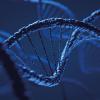Elevated levels of a protein called ubiquilin-4 can be a biomarker for genome instability, a Tel Aviv University study shows.
The researchers found that ubiquilin-4 takes part in defending the genome from DNA damage, but too much of the protein is harmful.
When the amount of ubiquilin-4 in tumour cells rises, the cells become more prone to genome instability, accelerating the tumour’s progression and making it resistant to commonly used cancer treatments.
Professor Yossi Shiloh, who led the study, said: “This novel biomarker provides new, critical information about the tumour stage and grade, as well as the patient’s chances of responding to treatment.
“Tumours with high levels of ubiquilin-4 may be more resistant to radiation and some chemotherapies than those with normal levels of this protein. “But the good news is that they may also respond better to other types of cancer therapy.”




